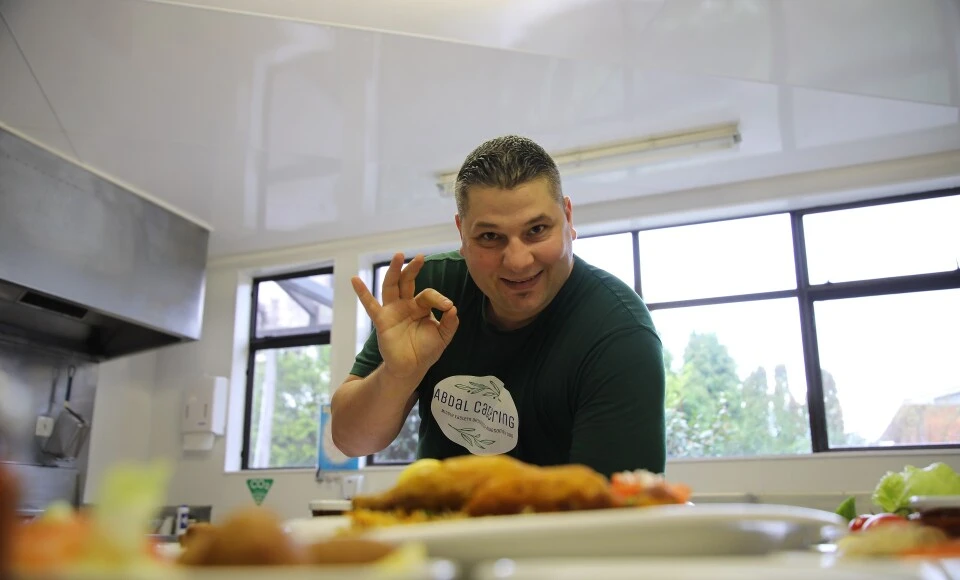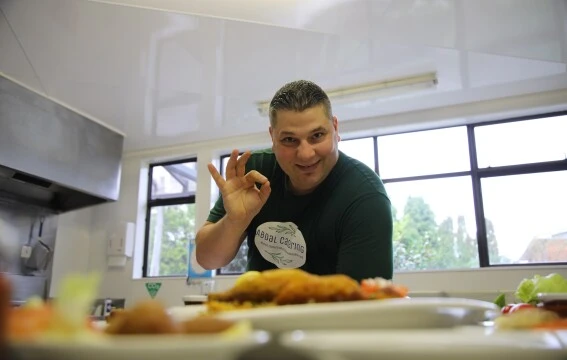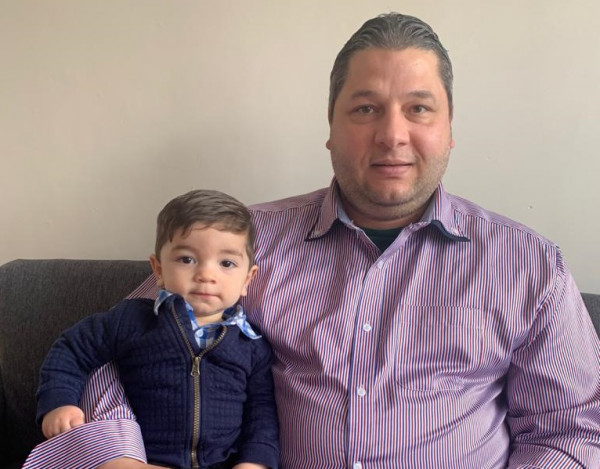“I saved my son’s life thanks to Red Cross”
10 September 2020


In the middle of the night, Abdal was faced with a parent’s worst nightmare — finding their child not breathing. Luckily, Abdal knew what to do.
It was a quiet night in Dunedin during COVID-19 Alert Level 4 lockdown. Abdal was fast asleep and so was the rest of the city. Suddenly, around 2am, his wife woke him up – Taha, their one-year old son, was not breathing.
Abdal rushed to their son’s bed – Taha was experiencing difficulties with breathing and started shaking and shivering.
“First, it was scary, and my wife was screaming! So, I took a few seconds to understand the situation and think about what to do. Then, the training kicked in,” explains Abdal.
First aid for the workforce
Abdal is a well-known caterer in Dunedin – he can be found at the local Farmers Market on Saturdays, introducing delicious Syrian cuisine to residents. He and his family arrived in New Zealand under the refugee quota after fleeing the war in Syria. Taha is the first Kiwi-born member of the family, a fact Abdal is very proud to highlight.
A key area of support New Zealand Red Cross provides for former refugees settled in New Zealand is employment. Our Pathways to Employment team assists former refugees to be ready for the workforce. From working on their CVs, to introducing them to employers and enrolling them in relevant courses and training, their support is varied and tailored to each individual.
In Abdal’s case, the Pathways to Employment team in Dunedin suggested he complete New Zealand Red Cross’ Workplace First Aid Training.
“We thought that as Abdal is a chef and caterer, it would be useful for him to do a first aid course to learn important skills, such as recognising when someone is choking and what to do to help them, or what to do when people have allergic reactions,” says Steve Phillips, New Zealand Red Cross Pathways to Employment Manager in Dunedin.
“We put a lot of people through our Red Cross First Aid Training, as it helps them build their confidence and CV, and appeal more employable to employers. It also means they can save lives, which is a win-win situation, really.”
When training kicks in
Abdal didn’t know he would need to use his first aid skills for the first time at home but, when Taha was lying in his bed not breathing, he knew what to do.
“I called 111 immediately. Then, I checked for a response, but there was none, so I started CPR on my son’s tiny body,” explains Abdal.
“Alhamdulillah, it worked! Once he started breathing again, I turned him onto his side, and waited for the ambulance to arrive.”
When the paramedics arrived, they brought oxygen for Taha and said to Abdal he had done the right thing. Without Abdal’s quick actions, the likelihood of Taha surviving was very low.
“My First Aid Training course with Red Cross last year helped me save my son’s life. Without that knowledge, I wouldn’t have known what to do.”
New Zealand Red Cross’ NZQA-approved first aid courses help Kiwis look after each other at home and in the workplace. We run a wide range of courses across the country, training more than 57,000 people each year.
Our leading first aid programme builds resilience within our communities by minimising risk and saving lives — while also providing funds to support our humanitarian activities.
“I strongly encourage everyone to do a course. It’s a really important training. It saved my son!”

Taha and his dad, Abdal.
Know what to do
Accidents can happen any time and anywhere. There are a few ways you can learn first aid:
